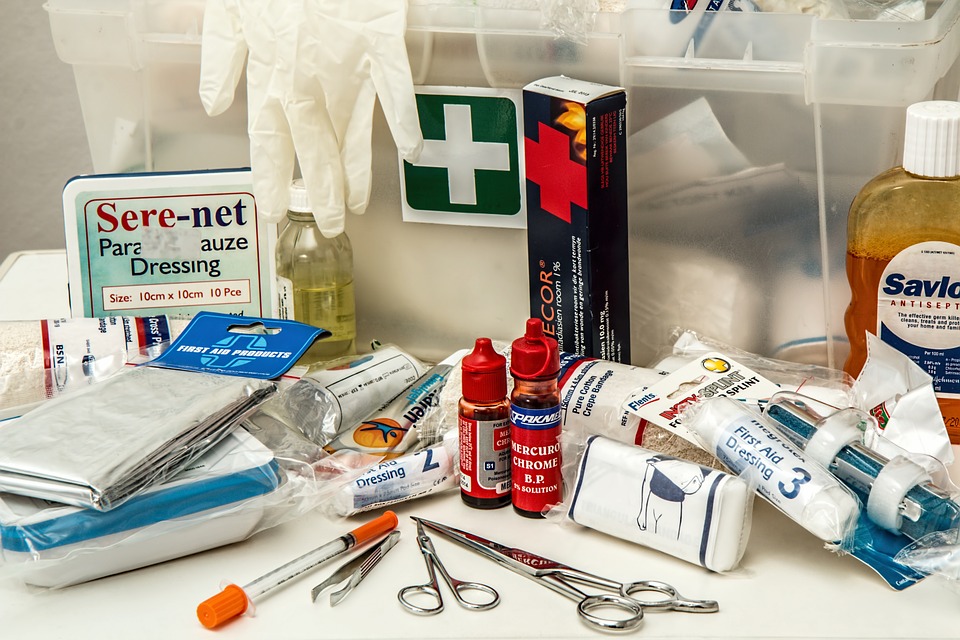
- This event has passed.
Provide First Aid Course
February 19, 2019 @ 9:30 am - 4:30 pm

HLTAID003 PROVIDE FIRST AID
Overview
The unit of competency HLTAID003 Provide First Aid describes the skills and knowledge required to provide first aid response, life support, management of casualty(s), the incident and other first aiders, until the arrival of medical or other assistance.
Combination
This flexible option combines personal study/theory assessment with a one-day face to face training session.
Entry Requirements
Students must have the physical ability to provide resuscitation by kneeling on the floor and performing two (2) minutes of uninterrupted CPR on an adult and infant manikin.
Students under the age of 18 years will be required to provide a signed parental consent form prior to attending the course.
Learning Support
If you have a learning difficulty or other disability that makes it difficult for you to be assessed please notify the trainer, so another form of assessment may be used, and early assistance may be given.
Pre-Requisites
There are no pre-requisites.
Assessment Requirements
Multiple choice theory questions and simulated practical scenarios. It is a Training Package requirement of this course that you are physically capable of performing uninterrupted CPR for at least 2 minutes on a CPR manikin placed on the floor.
Performance Evidence
There must be evidence that the candidate has completed the following tasks in line with state/territory regulations, first aid codes of practice, Australian Resuscitation Council (ARC) guidelines and workplace procedures:
- Followed DRSABCD in line with ARC guidelines, including:
- Performed at least 2 minutes of uninterrupted single rescuer cardiopulmonary resuscitation (CPR) (5 cycles of both compressions and ventilations) on an adult resuscitation manikin placed on the floor
- Performed at least 2 minutes of uninterrupted single rescuer CPR (5 cycles both compressions and ventilations) on an infant resuscitation manikin placed on a firm surface
- Responded appropriately in the event of regurgitation or vomiting
- Managed the unconscious breathing casualty
- Followed single rescue procedure, including the demonstration of a rotation of operators with minimal interruptions to compressions
- Followed the prompts of an Automated External Defibrillator (AED)
- Responded to at least two simulated first aid scenarios contextualised to the candidate’s workplace/community setting, including:
- Conducted a visual and verbal assessment of the casualty
- Demonstrated safe manual handling techniques
- Post-incident debrief and evaluation
- Provided an accurate verbal or written report of the incident
- Applied first aid procedures for the following:
- Allergic reaction
- Anaphylaxis
- Bleeding control
- Choking and airway obstruction
- Envenomation, using pressure immobilisation
- Fractures, sprains and strains, using arm slings, roller bandages or other appropriate immobilisation techniques
- Respiratory distress, including asthma
- Shock
Knowledge Evidence
The candidate must be able to demonstrate essential knowledge required to effectively complete tasks outlined in elements and performance criteria of this unit, manage tasks and manage contingencies in the context of the work role. This includes knowledge of:
State/Territory regulations, first aid codes of practice and workplace procedures including:
- ARC Guidelines relevant to provision of CPR and first aid
- safe work practices to minimise risks and potential hazards
- infection control principles and procedures, including use of standard precautions
- requirements for currency of skill and knowledge
legal, workplace and community considerations including:
- awareness of potential need for stress-management techniques and available support following an emergency situation
- duty of care requirements
- respectful behaviour towards a casualty
- own skills and limitations
- consent
- privacy and confidentiality requirements
- importance of debriefing
considerations when providing first aid including:
- airway obstruction due to body position
- appropriate duration and cessation of CPR
- appropriate use of an AED
- chain of survival
- standard precautions
- how to conduct a visual and verbal assessment of the casualty
principles and procedures for first aid management of the following scenarios:
- abdominal injuries
- allergic reaction
- anaphylaxis
- basic care of a wound
- bleeding control
- burns
- cardiac conditions, including chest pain
- choking and airway obstruction
- crush injuries
- diabetes
- dislocations
- drowning
- envenomation
- environmental impact, including hypothermia, hyperthermia, dehydration and heat stroke
- eye and ear injuries
- fractures
- febrile convulsions
- head, neck and spinal injuries
- minor skin injuries
- needle stick injuries
- poisoning and toxic substances
- respiratory distress, including asthma
- seizures, including epilepsy
- shock
- soft tissue injuries, including strains and, sprains
- stroke
- unconsciousness
basic anatomy and physiology relating to:
- how to recognise a person is not breathing normally
- chest
- response/consciousness
- upper airway and effect of positional change
- considerations in provision of first aid for specified conditions
Outcomes
On successful completion, participants will receive a nationally recognised statement of attainment in HLTAID003 Provide First Aid, valid for three (3) years from the completion date. The Code of Practice and Australian Resuscitation Council recommends that cardiopulmonary resuscitation skills are refreshed annually.
Cost
- Available for volunteers
